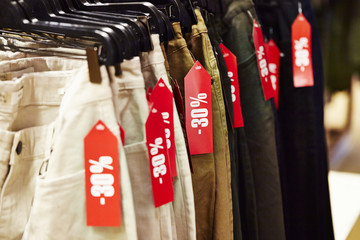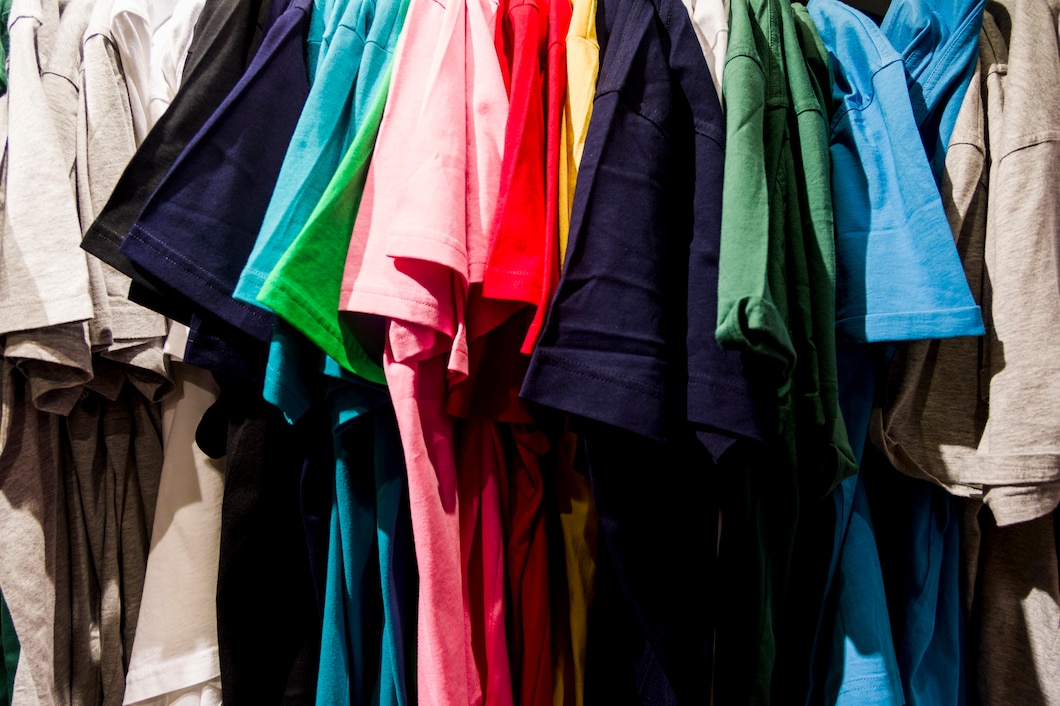Fast fashion is a term used to describe the trend of mass-producing trendy clothing and accessories at low prices, with the goal of getting them to consumers as quickly as possible. While this business model may seem appealing to shoppers looking for affordable and on-trend clothing, the environmental impact of fast fashion is significant.
The Environmental Impact of Fast Fashion

Water pollution: The production of fast fashion relies heavily on water, with millions of gallons being used in the dyeing and finishing processes. Much of this water is contaminated with chemicals, which can be harmful to both the environment and human health.
Landfill waste: Fast fashion is designed to be worn a few times and then discarded, leading to an enormous amount of clothing and accessories ending up in landfills. According to the Environmental Protection Agency, textiles account for 5% of landfill waste in the United States.
Greenhouse gas emissions: The production of fast fashion requires the use of fossil fuels, which emit greenhouse gases into the atmosphere. In fact, the fashion industry is responsible for 10% of global carbon emissions.
Chemicals and dyes: The chemicals and dyes used in fast fashion production are often toxic, and can have a negative impact on both human health and the environment.
Labor exploitation: In order to keep costs low, fast fashion brands often rely on labor practices that are exploitative and inhumane. Workers are often paid very low wages and forced to work in unsafe and unhealthy conditions.
The Alternatives to Fast Fashion

Thrift and vintage shopping: By shopping at thrift stores and vintage shops, consumers can find unique and affordable clothing while reducing their impact on the environment.
Sustainable and ethical fashion: Many brands are now prioritizing sustainability and ethical labor practices in their production processes. These brands often use eco-friendly materials, reduce waste, and pay workers fair wages.
Quality over quantity: By investing in high-quality clothing and accessories that are made to last, consumers can reduce their reliance on fast fashion and minimize their environmental impact.
Clothing swaps and rentals: Clothing swaps and rental services allow consumers to try out new styles without contributing to the landfill waste associated with fast fashion.
The Role of Consumers in Reducing Fast Fashion’s Environmental Impact
Consumers play a crucial role in reducing the environmental impact of fast fashion. By making more conscious choices about what they buy and how they dispose of it, consumers can help reduce the demand for fast fashion and encourage brands to adopt more sustainable practices.
Here are some ways that consumers can reduce the impact of fast fashion:
Buy less, choose well: Consumers should focus on buying high-quality clothing and accessories that are made to last, rather than purchasing a lot of cheap and disposable items. Choosing classic, timeless pieces can also help reduce the need to constantly update one’s wardrobe.
Support sustainable and ethical brands: Consumers can support brands that prioritize sustainability and ethical labor practices, such as those that use eco-friendly materials, reduce waste, and pay workers fair wages.
Repair and recycle: Instead of throwing away damaged or worn clothing, consumers can repair them or repurpose them into something new. Many communities also offer textile recycling programs, which can help keep clothing out of landfills.
Shop second-hand: Shopping at thrift stores, consignment shops, and online resale platforms is a great way to find unique and affordable clothing while reducing the demand for fast fashion.
Spread awareness: Consumers can use their voices and social media platforms to spread awareness about the negative impact of fast fashion and encourage others to make more conscious choices.
In conclusion, fast fashion’s impact on the environment cannot be ignored, but consumers have the power to make a difference. By choosing sustainable and ethical fashion, buying less, repairing and recycling, and spreading awareness, consumers can help reduce the negative impact of fast fashion on the environment and promote a more sustainable fashion industry.



